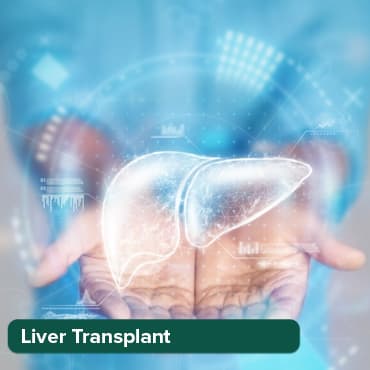
Empowering Health: Understanding and Preventing Metastatic Cancer
18 Oct, 2023
 Healthtrip Team
Healthtrip TeamMetastatic Cancer
Metastatic cancer, in simple terms, refers to a stage of cancer where the disease has spread from its original location to other parts of the body. Imagine cancer as a journey, and metastasis is when it decides to take a detour, affecting organs beyond where it started.
Understanding metastatic cancer is crucial because it represents a critical phase in the progression of the disease. It's like decoding a puzzle to grasp how cancer spreads and evolves. By gaining insights into metastasis, we empower ourselves to develop more effective treatments and strategies for prevention. It's not just about knowing the enemy but also finding ways to outsmart it at every turn.
Transform Your Beauty, Boost Your Confidence
Find the right cosmetic procedure for your needs.

We specialize in a wide range of cosmetic procedures

Types of Metastatic Cancer
A. Common Types
1. Breast Cancer Metastasis
- Common Sites: Bones, lungs, liver, and brain.
- Characteristics: Breast cancer often metastasizes to distant organs, impacting their function.
2. Lung Cancer Metastasis
- Common Sites: Brain, bones, liver, and adrenal glands.
- Characteristics: Lung cancer cells may travel through the bloodstream or lymphatic system, affecting other vital organs.
3. Colorectal Cancer Metastasis
- Common Sites: Liver, lungs, peritoneum, and distant lymph nodes.
- Characteristics: Colorectal cancer frequently spreads to the liver due to its proximity and blood circulation.
4. Prostate Cancer Metastasis
- Common Sites: Bones, lymph nodes, liver, and lungs.
- Characteristics: Prostate cancer often metastasizes to bones, impacting bone density and causing complications.
5. Melanoma Metastasis
- Common Sites: Lungs, liver, brain, and distant skin.
- Characteristics: Melanoma, a type of skin cancer, can metastasize widely, affecting both internal and external organs.
6. Ovarian Cancer Metastasis
- Common Sites: Peritoneum, liver, lungs, and distant lymph nodes.
- Characteristics: Ovarian cancer cells can spread within the abdominal cavity and to distant organs.
7. Renal Cell Carcinoma Metastasis
- Common Sites: Lungs, bones, liver, and adrenal glands.
- Characteristics: Renal cell carcinoma often metastasizes to distant organs, impacting their function.
8. Pancreatic Cancer Metastasis
- Common Sites: Liver, lungs, peritoneum, and distant lymph nodes.
- Characteristics: Pancreatic cancer is known for early metastasis, often making it challenging to detect in its early stages.
9. Thyroid Cancer Metastasis
- Common Sites: Lungs, bones, and distant lymph nodes.
- Characteristics: Thyroid cancer cells can spread to various parts of the body, affecting distant organs.
It is important to note that metastatic cancer is not a new type of cancer. It is simply the same type of cancer that has spread to another part of the body. For example, breast cancer that has spread to the lungs is still breast cancer, not lung cancer.
B. Organs Most Affected
Most popular procedures in India
Atrial septal defect
Upto 80% off
90% Rated
Satisfactory

Coronary Angiogram a
Upto 80% off
90% Rated
Satisfactory

Coronary Angiogram C
Upto 80% off
90% Rated
Satisfactory

Liver Transplant
Upto 80% off
90% Rated
Satisfactory

Total Hip Replacemen
Upto 80% off
90% Rated
Satisfactory

As cancer spreads, it tends to favor certain organs. For instance, lung cancer may commonly metastasize to the brain, while breast cancer may often spread to the bones. Understanding which organs are more susceptible helps in anticipating and monitoring potential metastatic sites, aiding in treatment planning and patient care.
Demographics affected
A. Age Groups Affected
Metastatic cancer doesn't discriminate based on age, but certain age groups may be more susceptible. While some cancers are prevalent in older populations, others may affect younger individuals. Understanding the age dynamics helps tailor screening and awareness campaigns to specific demographics.
B. Gender Distribution
C. Geographical Trends
Cancer isn't uniform across the globe. Geographical factors, such as environmental influences and access to healthcare, play a role in cancer prevalence. Awareness of these trends aids in allocating resources effectively and addressing region-specific challenges in cancer prevention and treatment.
Symptoms and Signs
A. General Symptoms
- Fatigue: Persistent tiredness not relieved by rest.
- Unexplained Weight Loss: Significant weight loss without apparent reason.
- Pain: Ongoing pain that is unrelated to other conditions or injuries.
B. Specific Symptoms Based on Organ Affected
- Lung Metastasis:
- Persistent Cough: Especially if accompanied by blood.
- Shortness of Breath: Difficulty breathing unrelated to exertion.
- Liver Metastasis:
- Jaundice: Yellowing of the skin and eyes.
- Abdominal Pain: Discomfort or pain in the abdominal area.
- Bone Metastasis:
- Bone Pain: Persistent pain in the bones.
- Fractures: Increased risk of fractures, even with minor injuries.
- Brain Metastasis:
- Headaches: Frequent and severe headaches.
- Neurological Symptoms: Changes in vision, speech, or coordination.
C. Recognizing Early Signs
- Regular Checkups: Routine medical checkups for early detection.
- Understanding Personal Risk: Knowing family history and personal health risks.
- Vigilance for Changes: Noticing and reporting any unusual changes in the body.
Causes of Metastatic Cancer
A. Primary Cancer and Metastasis
- Spread of Cancer Cells: Cells from the primary tumor traveling to other parts.
- Blood and Lymphatic Systems: Common pathways for cancer cell movement.
B. Genetic Factors
- Inherited Mutations: Genetic changes passed down through families
- Gene Expression: Abnormalities that increase susceptibility to metastasis.
C. Environmental Factors
- Carcinogens: Exposure to substances known to cause cancer.
- Lifestyle Choices: Tobacco use, poor diet, and lack of physical activity.
Diagnosis
A. Imaging Techniques
In the diagnostic journey of metastatic cancer, imaging techniques serve as powerful tools. Sophisticated technologies like CT scans, MRIs, and PET scans provide detailed pictures of the body's internal structures. These images aid healthcare professionals in locating tumors, identifying affected organs, and assessing the extent of metastasis.
B. Biopsy and Pathology
A cornerstone in confirming the presence of metastatic cancer is the biopsy. A small tissue sample is taken from the suspected tumor or metastatic site. Through pathology, experts examine the cellular characteristics of the sample. This microscopic analysis not only confirms cancer but also helps identify the type, guiding treatment decisions.
C. Staging
Staging is akin to creating a roadmap for cancer treatment. It involves determining the extent of cancer spread. The TNM system, considering tumor size, lymph node involvement, and metastasis, is commonly used. Staging provides a standardized language for healthcare teams, facilitating communication and ensuring a unified approach to treatment.
Treatment Options
A. Surgery
Surgery is a frontline warrior in the fight against metastatic cancer. Skilled surgeons aim to remove the primary tumor and, if feasible, metastatic lesions. In certain cases, surgery helps alleviate symptoms and improves the effectiveness of other treatments.
B. Chemotherapy
Chemotherapy, often likened to a systemic warrior, employs drugs to target and destroy cancer cells throughout the body. While it may have side effects, modern chemotherapy is designed to be more targeted, reducing harm to healthy cells.
C. Radiation Therapy
Radiation therapy utilizes high doses of radiation to target and destroy cancer cells. It is particularly effective in treating localized metastatic lesions. Advanced techniques allow for precision, minimizing damage to surrounding healthy tissue.
D. Immunotherapy
Immunotherapy harnesses the power of the body's immune system to combat cancer. It stimulates the immune response, enhancing its ability to identify and destroy cancer cells. Immunotherapy has shown remarkable success, especially in certain types of metastatic cancers.
E. Targeted Therapy
Targeted therapy is a precise approach, focusing on specific molecules involved in cancer growth. By interfering with these molecules, targeted therapy aims to halt the progression of cancer cells. This approach often results in fewer side effects compared to traditional chemotherapy.
In the realm of metastatic cancer, treatment is often multidisciplinary, combining these approaches for a comprehensive and personalized strategy. The choice of treatment depends on factors like the type of cancer, its stage, and the overall health of the individual.
Risk Factors
A. Personal Health History
- Previous Cancer Diagnosis
- Chronic Health Conditions (e.g., chronic inflammation)
- Certain Pre-existing Medical Conditions (e.g., autoimmune diseases)
B. Family History
- Presence of Cancer in Close Relatives
- Inherited Genetic Mutations
- Family History of Metastatic Cancer
C. Lifestyle Factors
- Tobacco Use
- Poor Diet High in Processed Foods
- Lack of Physical Activity
- Exposure to Carcinogens in the Environment
- Excessive Alcohol Consumption
Complications
A. Impact on Organ Function
- Impaired Organ Function Due to Tumor Growth
- Compression of Surrounding Tissues and Organs
- Disruption of Normal Physiological Processes
B. Treatment-Related Complications
- Side Effects of Chemotherapy (e.g., nausea, fatigue)
- Radiation-Induced Tissue Damage
- Surgical Complications
- Immunotherapy-Related Adverse Events
Preventive Measures
A. Early Detection Strategies
- Regular Cancer Screenings Based on Age and Risk Factors
- Self-Examinations (e.g., breast self-exams)
- Health Check-ups and Routine Medical Visits
B. Lifestyle Changes
- Healthy Diet Rich in Fruits and Vegetables
- Regular Physical Exercise
- Smoking Cessation
- Limited Alcohol Consumption
C. Genetic Counseling
- Genetic Testing for Inherited Mutations
- Understanding Family History and Genetic Risks
- Guidance on Risk Reduction Strategies Based on Genetic Profile
Taking proactive steps to address risk factors, coupled with regular screenings and a healthy lifestyle, plays a pivotal role in preventing metastatic cancer or detecting it at an early and more treatable stage.
Outlook/Prognosis
The outlook for metastatic cancer varies, influenced by factors such as cancer type, stage, and individual responses to treatment. Early detection through regular screenings improves prognosis, but survival rates also hinge on factors like overall health and genetic considerations. Quality of life becomes a crucial aspect, with treatment side effects and emotional well-being playing roles. Despite challenges, ongoing research and advancements in therapy instill hope for improved outcomes. A collective commitment to awareness and proactive health measures remains key in navigating and mitigating the impact of metastatic cancer.
In summary, metastatic cancer demands early detection, precise treatment, and heightened awareness. Regular screenings are key to saving lives, while understanding risk factors empowers preventive actions. Ongoing research brings hope, with advancements in therapies promising improved outcomes. Together, a commitment to awareness and research charts a path towards a future where the impact of metastatic cancer is mitigated.
Wellness Treatment
Give yourself the time to relax
Lowest Prices Guaranteed!

Lowest Prices Guaranteed!
